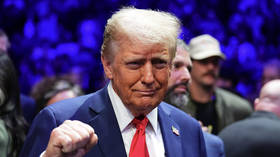EU proposes ‘global billionaire tax’

Governments should create a global minimum tax on the wealth of the super-rich who are using shell companies to funnel dividends and own property, the EU Tax Observatory research group has proposed.
In a report published on Sunday, the Observatory claimed that a 2% levy on the wealth of the world’s 2,750 billionaires could raise some €236 billion ($250 billion) per year. At present, billionaires are using loopholes to avoid certain forms of income tax, resulting in effective tax rates of just 0%-0.6% of their total wealth, the Paris-based tax watchdog claimed. Income taxes levied on the wealthy who do not avail of loopholes end up between 20% and 50%, the report found.
Shell companies and real estate continue “...to provide ample opportunities for the rich to avoid and evade taxes,” the report noted.
“These holding companies are in a gray zone between avoidance and evasion. To the extent that they are created with the purpose of avoiding the income tax, they can legitimately be seen as closer to evasion.”
Observatory’s lead economist Gabriel Zucman suggested that minimum rates were the most powerful tools to address loopholes in existing tax systems because they ensure that, no matter what avoidance measures are used, the tax collected cannot fall below a set amount.
“This is the logical next step after the global minimum tax on multinational companies – which demonstrates that it is possible for countries to agree on minimum tax rates,” Zucman stated.
It took years of negotiations before a landmark agreement between 140 countries and territories was struck in 2021, imposing a global minimum tax rate of 15% on the biggest multinational companies. The idea was to stop multinationals from using accounting and legal maneuvers to shift earnings to low- or no-tax havens. However, the plan has been weakened by loopholes and will raise only a fraction of the revenue that was envisioned, according to the tax watchdog.
For more stories on economy & finance visit RT's business section












